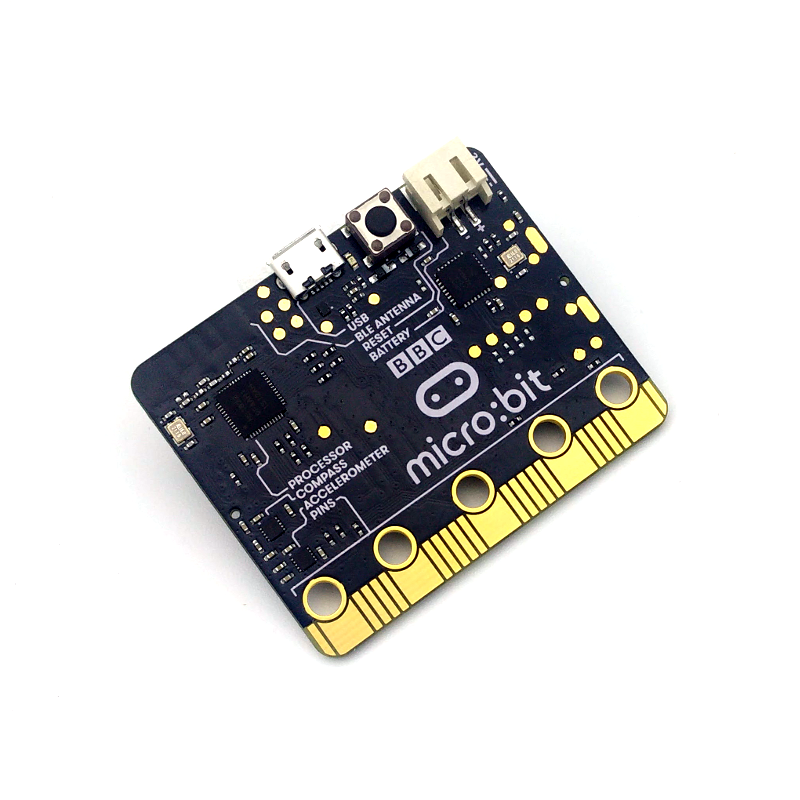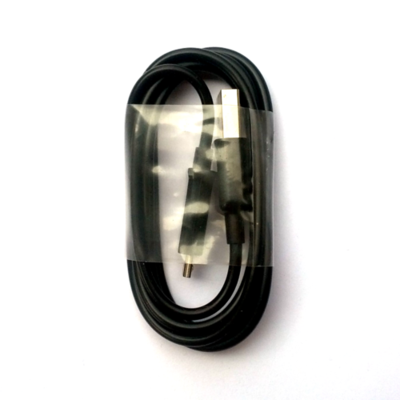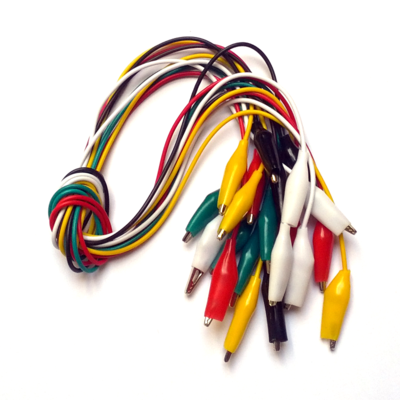
micro:bit V1
The BBC micro:bit V1 is a pocket-sized ARM-based programmable microcontroller designed primarily for school children education in software programming and learning about electronics. Some people called it the "Arduino for kids".
The board measures 4cm x 5cm. It takes power from a micro USB connector. The micro USB connection is also used for connection to a PC via USB for program uploading. The micro USB to USB cable is not included. Be sure to add it to your shopping cart if you need it. Alternatively, there is a 2-pin connector to power the board from 2x AAA batteries.
For user display, there is a 5 x 5 red LED matrix. It can be programmed to display scrolling text and animated patterns for interaction with a user. To accept user input, there are two user programmable push buttons.
Bluetooth Low Energy wireless connectivity makes this board suitable for Internet of Things (IoT) applications. This board can talk to mobile applications on phones or tablets that support Bluetooth connection and with internet connection, these devices can act as a gateway to the outside world.
Sensors on this board make it useful as ever. There is an accelerometer for motion detection and magnetometer or compass to detect magnet and sense direction.
The micro:bit supports multiple programming languages. There are two official web-based code editors that you can use: JavaScript Blocks Editor (PXT) and Python Editor. You can also write code on your mobile devices (Android and iOS) and send over the program to micro:bit wirelessly, no cable required.
This board is designed to be fun and easy to use. It is a great starting point for kids to learn programming.
Technical specifications:
- Processor: Nordic nRF51822 16 MHz 32-bit ARM® Cortex™ M0 CPU microprocessor
- Connectivity: Bluetooth Smart wireless
- I/O: Five Ring Input and Output including power (PWR), ground (GRD) and 3 x I/O to read values from sensors and control things like motors or robots
- User interface: Three tactile push buttons (two for user, one for reset)
- Display: 5x5 LED matrix
- On-board sensor:
- Motion detector or 3-AXIS digital accelerometer that can detect movement e.g. shake, tilt or free-fall and use it to control motion activated games
- A built-in compass, 3D magnetometer to sense direction and your movement in degrees also the presence of certain metals and magnets
- 20 pin edge connector: This allows the micro:bit to be connected to other devices such as Raspberry Pi, Arduino, Galileo and Kano through a standard connector
- micro USB connector: For power and connection to a computer for flashing program
- Battery connector: For power (2x AAA battery case with 2-pin JST-PH connector)
Useful links:


